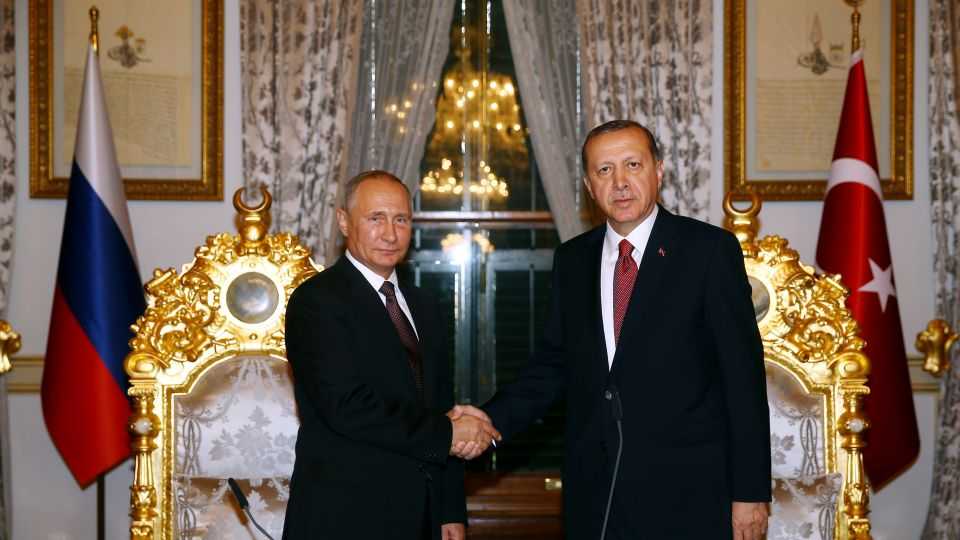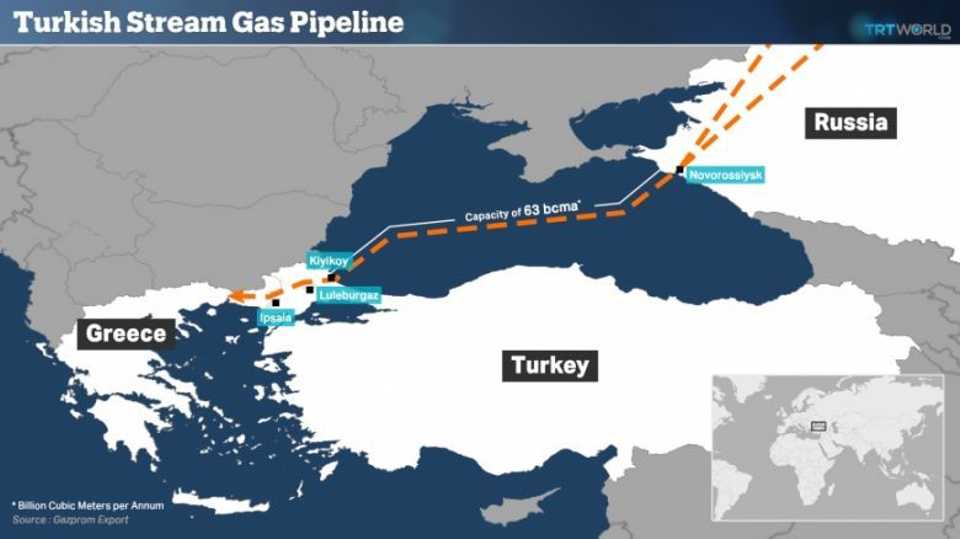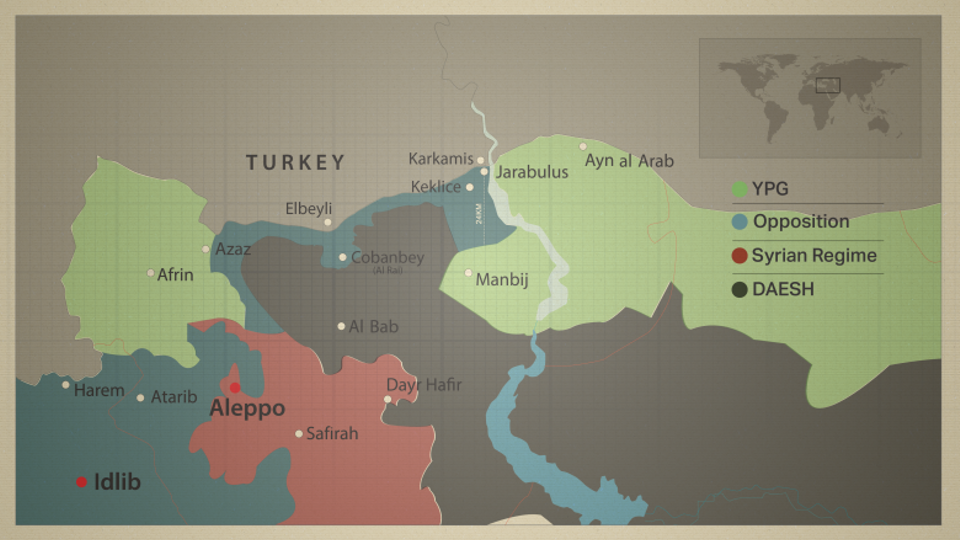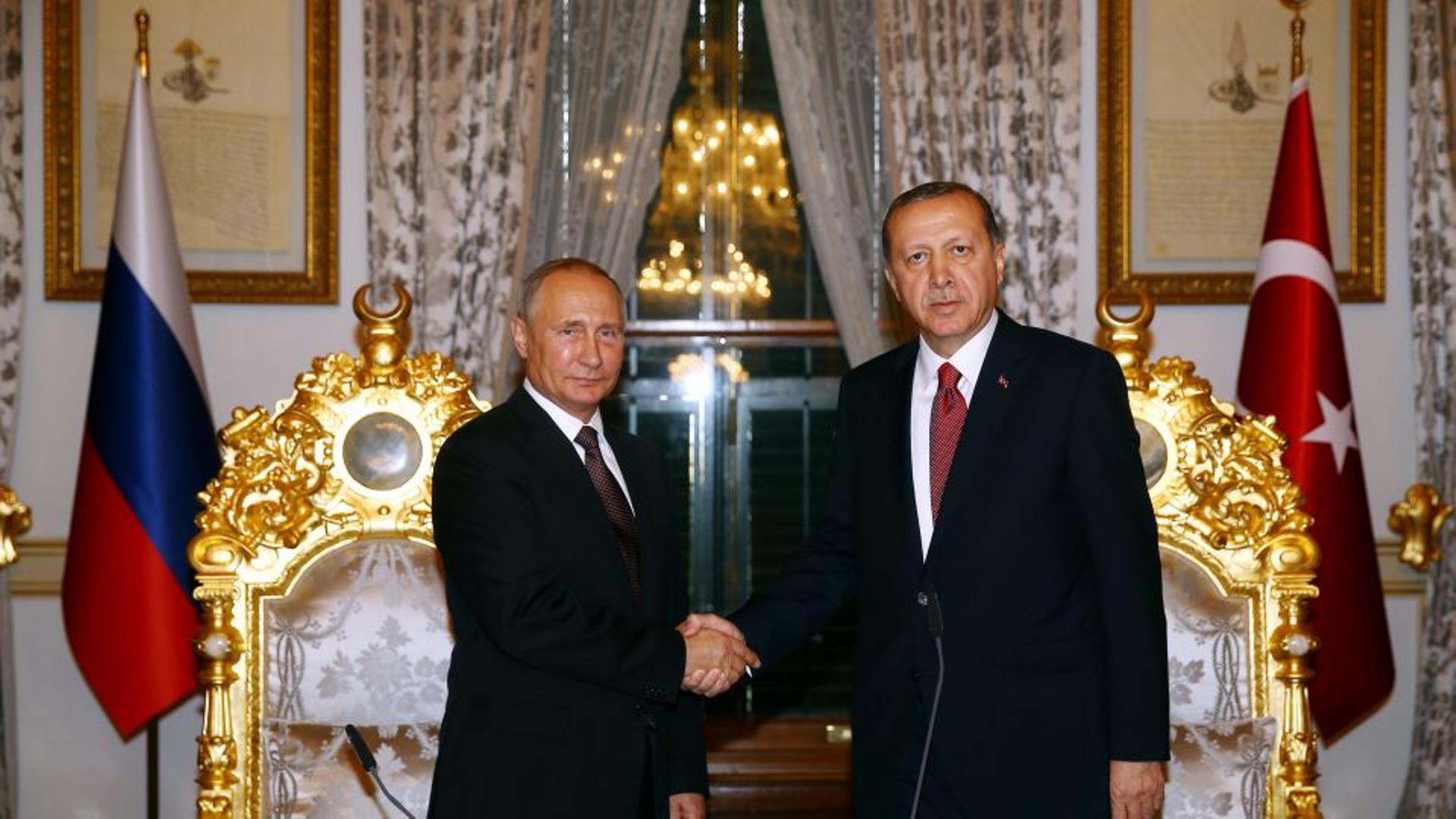
Turkey and Russia on Monday signed a bilateral agreement on construction of the TurkStream undersea gas pipeline.
Energy Minister Berat Albayrak and his Russian counterpart Alexander Novak signed the agreement following a meeting between President Recep Tayyip Erdogan and Russia’s President Vladimir Putin on the sidelines of the World Energy Congress being held in Istanbul.
Officials from the Russian state gas producer Gazprom, the project operator, had been in Ankara since last week to hammer out a deal.
Russia’s President Putin: We support Erdogan’s aim of making Turkey energy hub
— AA Energy (@AAEnergyNews) October 10, 2016
Russia and Turkey struggled for nearly two years to start work on the TurkStream project that allows Moscow to bypass Ukraine as a transit route for transporting gas to European markets.
One pipeline, with 15.75 billion cubic metres of capacity, is expected to supply the Turkish market, while a second line would carry gas to Europe.
Turkey, which is the second biggest consumer of Russian gas after Germany, imports around 30 billion cubic metres of gas from Russia annually via two pipelines -- the Blue Stream, which passes under the eastern Black Sea, and the Western Line through the Balkans.

TurkStream had previously faced a setback after Turkish jets downed a Russian warplane in November 2015, straining ties between the two erstwhile economic partners.
But relations have improved in the last couple of months. Putin and Erdogan are meeting for the third time in as many months. The two leaders first met in St Petersburg in August and a month later during the G20 summit in China.
Besides the TurkStream deal, Turkey and Russia agreed to re-establish trade relations, with Turkey resuming the export of certain goods such as oranges and other fruits to Russia.
The two countries also agreed to speed up work on the Akkuyu nuclear energy plant in southern Turkey.
The Syrian question
The agreement on the multibillion dollar TurkStream pipeline is significant considering that Moscow and Ankara support opposing sides in the Syrian civil war.
Putin's first visit to Turkey since last November's incident comes as Free Syrian Army (FSA) opposition fighters backed by Turkish forces continue to secure territory in northern Syria from DAESH.
The military operation, dubbed Euphrates Shield, is also considered to be an effort to stop the PKK-affiliated YPG from forming a corridor linking their autonomous "cantons" in northeastern Syria to another "canton" in the northwest.
Meanwhile, Russia continues to back Bashar al Assad's Syrian regime, especially in its aerial onslaught of the besieged opposition-held areas of eastern Aleppo where as many as 300,000 civilians are believed to be trapped.
With Turkish-backed forces preparing to march on to Al Bab, a strategic town just north of Aleppo city which could be used as a launchpad by the opposition to break the regime-imposed siege, the chasm between Ankara and Moscow regarding Syria could not be wider.

In a press conference with Putin on Monday, Erdogan said the two leaders had discussed the conflict in Syria, including Turkey's military operations there and the need to cooperate on the provision of aid to Aleppo.
"We evaluated how we can cooperate (on Syria). Especially regarding the developments in Aleppo, we discussed what kind of strategy we should implement on delivering humanitarian aid so people there can find peace," Erdogan said.
Putin added that he and Erdogan had "a common position that everything must be done to deliver humanitarian aid to Aleppo" but ensuring the safety of aid delivery remained an issue.










Discussion about this post